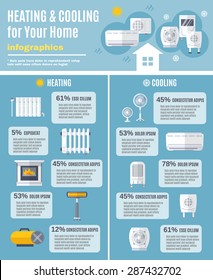Optimizing Convenience And Cost Savings - Tips For Optimizing Your Heat Pump Efficiency
Optimizing Convenience And Cost Savings - Tips For Optimizing Your Heat Pump Efficiency
Blog Article
Composed By-Fulton McDonough
Whether you have a heatpump or have an existing central heating boiler back up, there are a few points that can be done to enhance your system for reliable operation. By adhering to these suggestions, you can take full advantage of comfort and cost savings without straining your system or acquiring power costs.
Readjusting your thermostat for performance is among the first steps. Using zoning capacities to limit home heating of vacant spaces is one more effective strategy.
1. Set Your Thermostat to the Right Temperature
As the periods alter, stabilizing convenience and expense effectiveness can be an obstacle. Fortunately, https://costtoaddadditionalhvacve13443.blue-blogs.com/35961968/are-heat-pumps-one-of-the-most-reliable-hvac-option-for-your-home-a-comparative-evaluation of straightforward pointers can assist you minimize power usage and optimize financial savings.
Start by determining the most effective temperature level for your family members, after that set your thermostat appropriately. Avoid making large lift and down in the temperature setting, as this will create your heat pump to cycle on and off more often, using up extra energy.
Instead, slowly reduced the temperature level at night for a more comfortable resting setting. Then, elevate it somewhat in the morning. Keep in mind to maintain air vents open and directed downward when home heating, and up when cooling down to maximize blood circulation.
2. Inspect Your System Regularly
A heat pump system needs minimal upkeep, but it is essential to evaluate the unit routinely to capture any kind of troubles before they come to be severe. Clean interior filters on a routine established by the manufacturer or when they're noticeably dirty, and see to it exterior devices have at least two feet of clearance to permit airflow.
Inspecting the unit will also include cleansing, tightening electrical terminals, and running performance examinations to make certain accuracy during home heating and cooling down modes. It's suggested to have a specialist service the heatpump twice a year. Performing these regular solutions can make the most of energy financial savings and prolong the life of the system.
3. Clear Snow and Ice Around the Device
Heat pumps are designed to run outdoors and need to be devoid of snow and ice in order to circulate air. If your heat pump is blocked by snow and can't attract air, it will toggle in between cooling and heating and may overwork.
It is very important to clear a two-foot clearance around your outdoor unit in order to enhance air flow and protect against ice accumulation. Click That Link enter a defrost mode in the winter months to melt ice and snow yet this procedure can be problematic if your system is obstructed by too much snow. This will minimize your power effectiveness and bring about costly fixing costs in the future.
4. Examine the Cooling Agent Degrees
A heat pump makes use of refrigerant to cool your home in summer and warm it in winter. https://miloslexp.ambien-blog.com/35543463/discovering-the-environmental-advantages-of-heat-pumps-a-sustainable-home-heating-option can help maximize its efficiency by routinely checking the refrigerant degrees.
It takes much more power to transform the temperature level of your heatpump from a comfy setting to a chillier one than it does to preserve that temperature level. Transforming the temperature for brief time periods can also lose power.
Dripping ducts and dirty air filters can result in uneven temperature levels. They can also make your heatpump less reliable and set you back more to run. A specialist can situate and fix these problems to improve your heatpump's efficiency.
5. Enhance Your Zoning Capabilities
Using the zoning capacities of a heatpump can aid to minimize power waste by heating just busy areas. This not just decreases energy usage but likewise reduces operating expense and extends the life of the system.
The Build Well balanced Areas tool uses a hereditary formula to build areas that meet required area structure requirements. These requirements consist of equivalent location, density, and equivalent number of functions.
Additionally, by making use of smart thermostat innovation to optimize the temperature level settings based upon tenancy patterns and scheduling, you can better improve your heat pump's efficiency. Preserving a tidy air filter, ensuring correct insulation and having your ductwork examined for effectiveness can all add to improved energy cost savings as well.
6. Shielding the Outdoor Device
Home owners frequently ask whether it's worthwhile to plant shade trees near their outside air conditioner (AC) system. The response is generally of course, as shielding the air conditioning unit can help in reducing warmth from the sunlight, which consequently aids it cool down more effectively.
However, it is very important to keep in mind that shading the air conditioning unit does not always reduce energy intake. As explained in the Conversation section of the FSEC report, the temperature level of the surrounding air has a larger impact on cooling efficiency than does the volume of air drew in by the ac system.
If your a/c compressor is on the south side of your home, take into consideration growing high, deciduous trees with large, vast canopies. These can give ample color within one year.